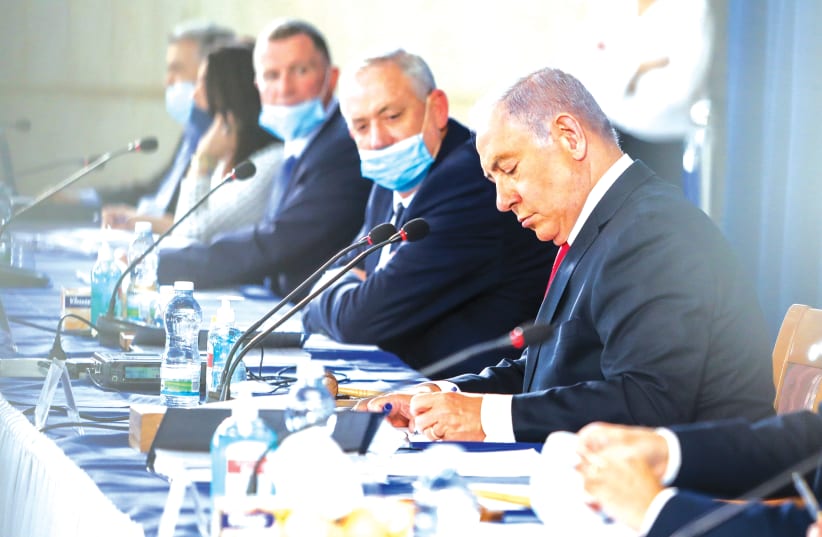While in most democracies – and certainly in strong democracies – there is an infrastructure of two major parties and the government is run by one of them, in Israel we parted ways with this model in the 1990s and have since relied on a multi-party coalition system.
The idea in democracy is not to turn the executive branch into an arena of political struggle. For this purpose, there is the Knesset, the media and public debate. And most importantly, for this purpose the political parties exist. Within the political party, the political game should and needs to be played.
The government, on the other hand, is intended to implement a policy that a majority of the public elects, a government that is not at the mercy of small parties but relies on a majority in parliament that allows it to govern.
But in Israel we have decided to blur the line between the political sphere and the executive branch, and in doing so we are not allowing the government to function. The Israeli government for quite a few years now has in fact become an arena in which political interests outweigh the public interests. Always.
The devastating tragedy at Mount Meron last week is a direct consequence of this rotten political system. And this is not the first time the political system led to deadly consequences:
Operation Protective Edge continued for weeks after the prime minister decided that the goals of the operation had been achieved, but failed to pass the ceasefire outline in the cabinet (and meanwhile the country was at war and soldiers were being killed).
The number of crucial decisions that fail to reach the cabinet table at all due to opposition from the coalition members can fill a book of tens of thousands of pages.
We must return to the framework of two major political parties that will be the home of political struggles, allowing the government to govern.
Critics of this idea argue that moving into large political parties will infringe on the rights of minorities who are represented through small parties. To this I say, although here in Israel we have a hard time admitting it, we are not special. Other countries also have matters of “state and church,” diverse populations, conflicts and disputes. The reason that countries with two big political parties do not infringe minority rights any more than Israel is because their interests are heard within the political parties. This way their influence is also proportionate.
The Israeli prime minister, whether he goes by “Benjamin Netanyahu” or “the best prime minister in the world,” has had a pistol held at his temple from day one in office. For every decision of his, there is a small party, without which the government would collapse, which threatens that if their narrow interests are not kept – they will dismantle the government. No matter the identity of the prime minister of Israel, he never chooses a policy that is in the general public’s interest because that choice does not really exist. In the best case, the political survival of a government is tied to the public interest.
No one talks about that. And no one is protesting that. Nothing will change if all that is discussed is whether we are for or against Netanyahu.
The author is chairman of TARA Strategic Research and Consulting and a former Israeli government secretary.
